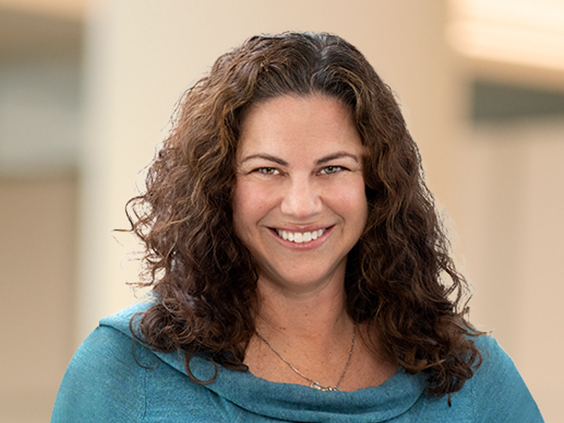The Love & Money Series
Helping you plan with care for the people and moments that matter
Key takeaways
- Estate planning isn’t just for the wealthy. Even small estates benefit from a clear plan that protects loved ones, avoids conflict and delays, and ensures your wishes are followed.
- Estate plan documents include a will, revocable trust, power of attorney, health care directive, and beneficiary designations.
- Don’t forget to fund your trust. Assets must be retitled in the trust’s name to be covered.
- Choose your trustee carefully. They’ll manage and distribute your assets.
- Plan for minor children by naming guardians and avoiding direct inheritance.
- Include digital assets like passwords, online accounts, and crypto in your plan.
“I’m too young for this.” “I don’t own enough to need a will.” “It’s only for the wealthy.” “I already named a beneficiary, so I’m covered.” These are just some of the common misconceptions around estate planning.
Melissa Sidor, a senior wealth strategist with Wells Fargo Wealth & Investment Management, and Nikki McCain, a senior fiduciary strategist with Wells Fargo Wealth & Investment Management, discuss the importance of estate planning and how it can help you maintain control, ensure a smooth transition without complications, and avoid family disputes.
What is estate planning?
“We all have an estate plan, whether we’ve created one or not,” said Sidor. “The state you live in has what’s called intestate statutes. If you don’t have an estate plan or will, your state intestate statutes become your plan. But that might not be what you want. Creating your own plan will allow you to decide where your assets will go, who will take care of your minor children, and who will settle your estate,” she said.
Keep in mind, estate planning has no minimum or maximum asset limit. “It’s not about how much money you have. It’s about protecting your loved ones and trying to prevent family conflict,” said McCain. “We see a lot of conflict when it comes to estate plans that have been drafted improperly or not at all. It’s making sure that your decisions — no matter how small they are — are carefully crafted in that document.”
A well-crafted estate plan can help:
- Avoid delays. Settling any estate can be time-consuming, but an ambiguous plan can be an extra burden on loved ones. Even if you have a small estate, you still want those assets to go where you want them to.
- Reduce family dynamics issues. While there is always the potential for disharmony, times of crisis are especially trying.
- Create a contingency plan. If you are no longer able to make decisions about your health or financial affairs, who will be authorized to make them for you?
- Care for minor children. “For many without significant assets, the primary reason for an estate plan is to appoint a guardian,” said Sidor. If something happens to you and your partner, you’ll have the people that you want taking care of your children.

What are the essential parts of an estate plan?
A comprehensive estate plan involves more than just a will. Here are the four basic documents that everyone should consider.
Will or a revocable living trust plus a pour-over will
A will states your wishes for who should receive your assets after you pass away, who should be the guardian of your minor children, and who will be the executor of your estate. A will has to be admitted to probate, a court-supervised procedure that in many states can be lengthy and expensive.
On the other hand, a revocable living trust lets you decide how your assets will be handled after your death, while also helping you avoid probate and prepare for the possibility of becoming incapacitated and unable to manage your affairs. It’s built around three key roles: the grantor (who creates the trust), the trustee (who manages the assets), and the beneficiaries (who receive the benefits).
It’s common for one person — often you — to fill all three roles, which means you stay in full control of your assets during your lifetime, even though they’re technically owned by the trust.

The trust outlines how and when your assets should be passed on to your beneficiaries, avoiding probate and making the process smoother and more private for your loved ones.
A pour-over will is a special type of will used alongside a revocable living trust. It acts as a safety net to catch any assets you didn’t transfer into your trust during your lifetime — like a newly purchased car — and “pours them over” into your trust after your death. This ensures all your assets are eventually governed, managed, and distributed by the terms of your trust. However, assets that pass through a pour-over will still go through probate before being moved into the trust, so it’s best to fund your trust fully while you’re alive.
Durable power of attorney
You appoint someone as your agent to handle your financial matters if you are ever unable to act for yourself, whether due to illness, injury, or age-related issues. It addresses paying bills, managing investments, filing taxes, business ownership interests, or dealing with banks and government agencies, and other aspects of your assets that fall outside of your revocable living trust.
Advance health care directive
This document does two things: It appoints an agent who can make medical decisions on your behalf when you are unable to do so and gives directions for the care you want to receive in different situations. Some states use a combination of different documents to appoint an agent and state your directions, including a health care power of attorney, health care proxy, and/or a living will.
Beneficiary designations
A beneficiary is someone you name to receive specific assets when you pass away. In fact, having beneficiary designations can help you avoid probate, because assets go directly to the named person. “We’ve seen small estates go through probate when they could have saved the trouble by simply making beneficiary designations or other small tweaks,” Sidor said.
You can update beneficiaries at any time through your employer or the institution holding the asset, such as your bank or insurance company.
Don’t forget to fund your trust
This means transferring ownership of your assets — like your home and car titles, bank accounts, or investments — into the name of the trust. It’s a crucial step because the trust agreement operates only over those assets held in the name of the trust. If you as the grantor create a trust but fail to transfer assets to it, it may not work as it was intended. Assets may have to go through probate and may not be managed or distributed according to your wishes.

Glossary
- Beneficiaries receive assets. These designations bypass probate and go directly to the named person, without the need for a trustee to manage the assets.
- Estate plans include a will, trusts, powers of attorney, and health care directives to manage your affairs while you’re alive and after you’re gone.
- Estate refers to all the property, assets, and debts legally owned by a person at the time of their death.
- Executors manage a deceased person’s estate as instructed in their will, including paying bills and distributing assets. This role ends when the estate is settled.
- Fiduciary duty means that person must act in the best interest of the beneficiaries.
- Grantor (also called a settlor or trustor) is the person who creates and funds a trust (in other words, you!). They decide what assets go into the trust, who will manage the trust (the trustee), who will benefit from it (the beneficiaries), and how and when those assets should be distributed.
- Intestate relates to a person who dies without having made a will.
- Pour-over wills are a special type of will that’s used alongside a revocable living trust.
- Probate is the legal process of settling a person’s estate after they pass away and involves validating a will (if there is one), paying off debts, and distributing assets under court supervision.
- Revocable living trust is a legal arrangement where you hold assets in your own name, and they pass to beneficiaries according to the trust’s terms. “Revocable” means you can make changes or even dissolve the trust at any time, as long as you’re mentally competent, and “living” means it is created during your lifetime.
- Successor trustees step in when you’re no longer able to serve as trustee of your revocable living will to manage or distribute assets according to your instructions.
- Trustees manage assets that are held in trust for others.
- Trusts can be used to control how and when assets are distributed, often avoiding probate.
- Wills are legal documents that outline who should receive your assets and who will care for your minor children after you pass away.
For example, instead of your house being titled in your name (“Maria Gonzales”), it’s titled in the name of your trust (“Maria Gonzales, Trustee of the Gonzales Family Trust”). You still control the assets as the trustee, but they’re titled in the name of the trust rather than your individual name.
Think long and hard about who you name as a trustee
A trustee is the person or institution you appoint to manage assets held in a trust. They follow the instructions in the trust document to distribute or manage assets for the benefit of the trust’s beneficiaries, and they have a fiduciary duty, meaning they must act in the best interest of the beneficiaries.
“A trustee is such an important position. You really need to make sure you’re naming someone who has the time, first and foremost,” said Sidor. “Many times, I’ve seen someone be named who really didn’t have the time, and that’s not doing anyone any good. Also, ask yourself if the person has any financial or legal savvy or expertise or at least has the capacity to learn. And you want to make sure you are not setting up tension between the beneficiary and the trustee — those family relationships can really break down if you don’t name the right person.”
McCain agrees that you want to make sure that all aspects of your life are being taken care of no matter what. “If you as the grantor becomes incapacitated, and the successor trustee who is also named under the health care directive has to step in, now they are taking on multiple roles,” she said. “Maybe that person really only had the time to take on one role and can’t do both at the same time.”
Digital assets are part of the big picture
If something were to happen to you, would your loved ones know how to access your phone, computer, or online accounts and photos? Make organizing log-in credentials, naming digital executors, and understanding how to securely transfer assets like digital assets part of your overall estate plan.
Read more: Estate planning: Why you need to plan for your online assets
Peace of mind and control over your personal legacy
Sometimes, it’s not just about who gets what, but why it matters. “I’ve heard people say, ‘My mom said she was going to give me this,’ however there’s nothing in the estate planning documents that says this is the case,” McCain said. “So, it can be very difficult for us to follow through on their wishes without that direction.”
This is where a memorandum to your will can come in. While it’s not legally binding, it’s a heartfelt way to spell out which sentimental or heirloom items, like a grandfather’s watch or a cherished family photo, you’d like certain family members to have. It can also be a space to share the meaning behind those items, the values they represent, and the life lessons you hope to pass down. Some people even write a letter to their family expressing their beliefs, hopes, and the legacy they want to leave behind. Have the memorandum prepared, then sign it and keep it with your estate documents.
FAQ
- Will or a revocable trust plus a pour-over will
- Durable power of attorney
- Advance health care directive
- Beneficiary designations
Estate planning has no minimum or maximum asset limit. It’s not about how much money you have. It’s about protecting your loved ones and preventing family conflict.
If you don’t have an estate plan, state laws decide how your assets are distributed through a process called intestate succession. This means you won’t have control over who inherits your property or who becomes guardian of your children. The process can be time-consuming, costly, and stressful for your loved ones — especially during an already difficult time. Having even a basic plan in place can help avoid confusion and ensure your wishes are followed.
A will is a legal document that outlines who should receive your assets and who will care for your minor children after you pass away. An estate plan is a more complete strategy that includes a will, but also covers trusts, powers of attorney, and health care directives to manage your affairs while you’re alive and after you’re gone. In short, a will is one part of an estate plan.
As soon as you have something — or someone — you want to protect. That could be a home, a savings account, a business, or even just making sure your personal wishes are honored. In fact, many people begin after major life events like getting married, having or adopting a child, starting a business, or buying a home.
Developing an estate plan is typically a collaborative process involving an estate planning attorney, a financial advisor, and an accountant or tax professional. Each brings specialized expertise to ensure your plan aligns with your legal, financial, and personal goals.
Even if you only have modest assets, not having an estate plan can potentially cause delays and expenses from probate that could be unreasonable in relation to the size of the estate and stressful to family members. Having an estate plan saves time and money for your family overall.
Get professional financial advice
No matter what stage of life you and your partner are in, a Wells Fargo Advisors financial advisor can help you reach your goals.






